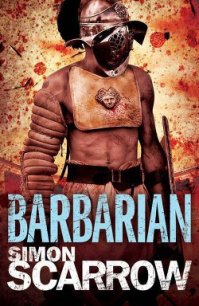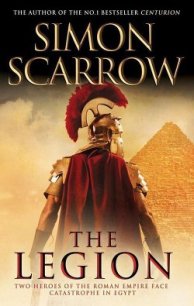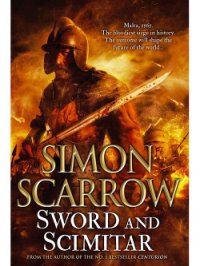The Fields of Death - Scarrow Simon (читаем книги онлайн бесплатно txt) 📗
Arthur ignored them as they ran past his position. A moment later the last of the gun crews in front of the oncoming columns discharged their cannon and trotted back to safety through the gaps between the regiments of Picton’s division.
Somerset had passed the orders on to Uxbridge and came galloping back to his commander’s side. ‘Your grace! You must move back; the French are almost upon us.’
Arthur nodded and turned Copenhagen away, and the two riders trotted towards the rear of Picton’s division. A hundred yards away Picton spied his commander and raised his top hat in greeting before turning his attention to his men and bellowing an order to his Highlanders. ‘The Ninety-second will advance! All in front of you have given way. Be brave, my boys! Forward!’ He drew his sword and waved it above his head.
The leading ranks of the French columns had reached the hedge and now some of the battalions halted to fire, while others pressed through the hedge and halted a short distance the other side. Arthur could not help holding his breath as the French muskets came up and a voice called out, ‘Tirez!’
Flashes lit up the line and the volley tore through the Highlanders running forward to engage the enemy. As scores of kilted figures tumbled down, the line staggered and almost came to a halt. Picton spurred his horse forward and called to his officers. ‘Rally! Rally the Highlanders!’
At that moment his head snapped backwards. His fingers spasmed and the blade fell to the ground. As the horse trotted on, Picton slumped to one side and fell from his saddle, rolled across the trampled grass and lay still.
‘Good God,’ Arthur muttered. ‘Poor Picton.’
A groan passed through the ranks as they became aware of their commander’s death, and then the Highlanders let out an angry roar and plunged towards the waiting French. It was a valiant charge, but Arthur knew that the weight of numbers was on the enemy’s side and that Picton’s men could not hold the centre of the allied line unaided.
From behind came the call of a trumpet, three blasts ending in a long, higher pitch, again and again. Uxbridge had ordered his heavy cavalry to attack. Two brigades edged forward. There was too little space to launch into a gallop and they could only trot through the gaps in Picton’s division as the infantry hurriedly closed up to let the horsemen by, cheering their mounted comrades on. The horsemen cantered forward, into the massed ranks of the French infantry, hacking and slashing with their heavy blades. For a moment the enemy’s nerve held, but as more British cavalry flowed round their flanks and loomed above them like giants in the thick smoke, their courage left them. The leading ranks turned and pressed into those behind, desperate to escape the swishing sword blades, and the panic communicated itself through the entire formation in moments. Thousands of infantry turned back down the slope and ran, desperately wriggling out of their cumbersome packs as they sought to escape.
‘By God, that was well timed!’ Somerset said as he rose up in his saddle and cupped a hand to his mouth. ‘Ride, men! Ride! Run ’em into the ground!’
Arthur turned to frown at him, about to tell his subordinate to show some restraint, when he caught sight of Uxbridge dashing past, sword drawn and urging his men on at the top of his voice. Then Uxbridge’s’s mount leaped a low stretch of hedge and thundered down the slope in pursuit of the enemy.
On the ridge the battered lines of Picton’s division re-formed their line and Arthur let out a low sigh. The centre had survived the first great test of the battle.
La Belle Alliance, 2.30 p.m.
Napoleon stared in silence at the fleeing mass, borne towards him like confetti. Surging forward through the fleeing figures were the riders of Wellington’s cavalry, closing up on the line of cannon stretching across the middle of the battlefield. The gunners dared not fire for fear of slaughtering their own men and could only watch in dread as the danger swept down the slope towards them. As the first of the British horsemen reached the guns some of the crews tried to defend themselves, using ramrods, handspikes and short swords. It was a brief, unequal struggle and the gunners were quickly driven away from their cannon, hurrying back to find shelter amid the limbers and under caissons. The horsemen pursued them, sabreing any man who came within reach. They also slashed at the tendons of the draught horses to disable them, and the helpless animals collapsed in their traces, whinnying in agony and terror.
Around the Emperor, his staff officers watched the cavalry charge aghast. Only a short time earlier, it had seemed that nothing could stop d’Erlon’s corps from smashing its way through the heart of the allied army. Now all three divisions were scattered and the slope was covered with thousands of bodies.
‘Sire, what are your orders?’ asked Soult. ‘Should we move the headquarters to safety?’
‘There is no need,’ Napoleon said wearily. ‘The counter-stroke is already under way. Look there.’ He gestured to their right where General Jacquinot’s cavalry had emerged from the broken ground on the east of the battlefield. The force was made up of cuirassiers and lancers and they swiftly deployed to charge into the flank of the British cavalry, many of whom were still engrossed in the destruction of d’Erlon’s men and the artillery train behind the grand battery, and so carried away by their exuberant spirits that they failed to realise the danger, or respond to the desperate recall signal sounding from the top of the ridge.
When his men were ready, Jacquinot led the charge himself, steadily building the pace until he unleashed his cavalry a short distance from the enemy. The charge crashed through the British horsemen, who were cut down as they struggled to meet the attack. Their horses were blown, and many who gave up the fight and turned back towards the ridge to try to escape were overtaken and killed.
Napoleon watched with grim satisfaction as his cavalry avenged their comrades, riding down and killing one enemy after another and leaving their bodies in the mud alongside those of d’Erlon’s men. Both sides had suffered a bloody reverse, Napoleon reflected, but the allies still held the ridge, as well as the strongpoints that lay before it.
‘We can only win this battle if we break Wellington’s centre,’ he announced. He looked towards Hougoumont, shrouded by smoke, not all of which was caused by the furious exchange of musket fire. A billowing column was rising into the sky from amongst the buildings, and flames glittered along the roof of a barn. With luck the fire might spread and force the defenders to fall back. That left the smaller farmhouse of La Haye Sainte, directly in front of Wellington’s centre. Napoleon had observed the withering fire that had been poured into the flank of d’Erlon’s division by the defenders of the farm. Clearly, La Haye Sainte must be taken, if any attack on the ridge was to have a chance of success. He turned to Soult.
‘Tell Ney we must have the farm if we are to win the battle. He must take it at any cost.’ He pointed to the stretch of ridge behind La Haye Sainte and Hougoumont. The slope there seemed more gentle than where d’Erlon had made his advance. It was also less muddy, and would not be such a hindrance to any attack on the ridge. ‘That is where we must strike next. Tell Ney to use every available gun to pound the allied centre before he sends in an attack.’
Soult nodded and made a quick note. As he wrote, a courier galloped up to the inn and dismounted from his exhausted horse. Spotting Soult he hurried over and handed him a despatch. Soult quickly finished his order to Ney and read the report. Then, with a grim expression, he approached Napoleon and spoke softly so that the other officers would not overhear.




